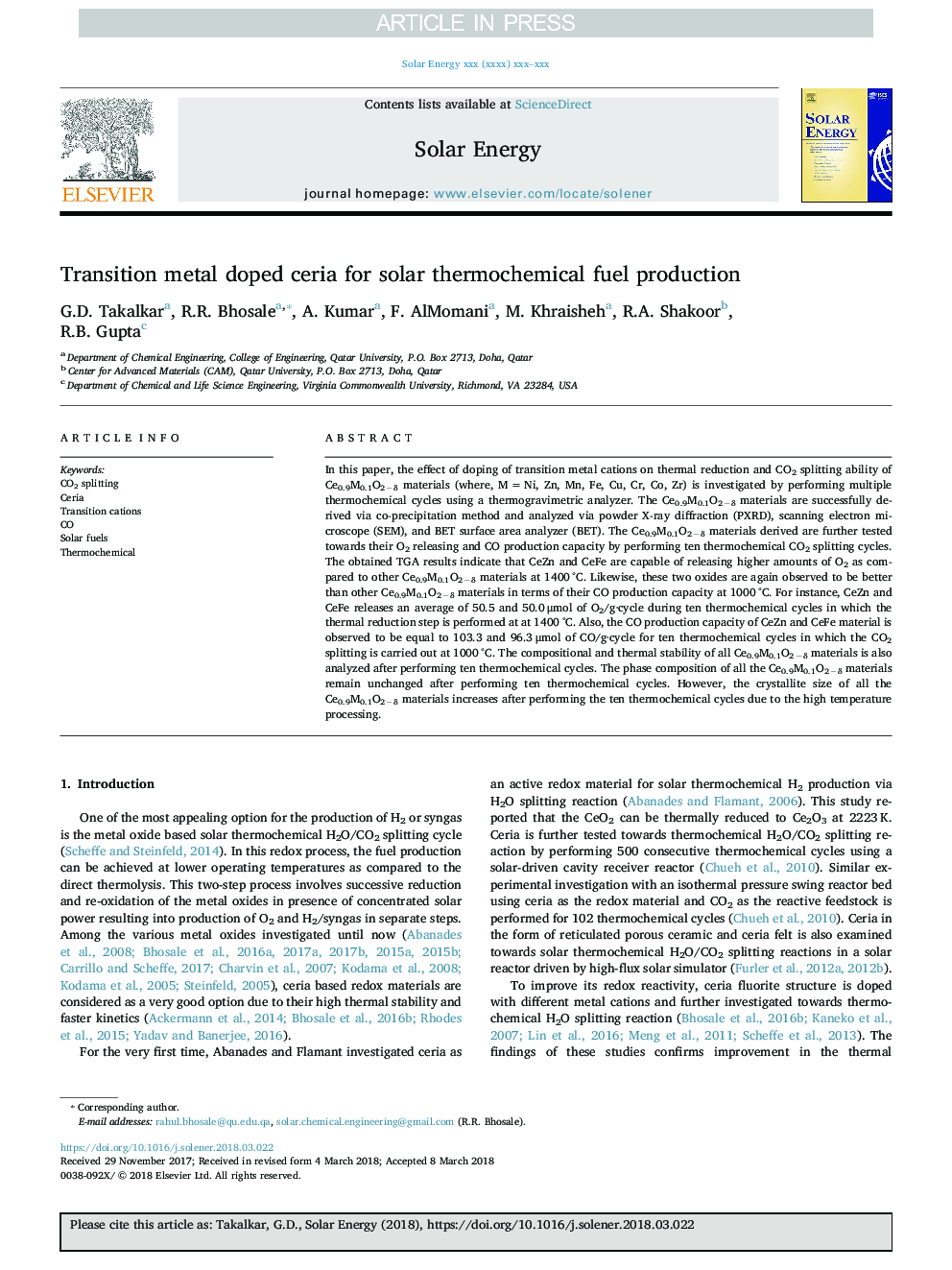| Article ID | Journal | Published Year | Pages | File Type |
|---|---|---|---|---|
| 11011428 | Solar Energy | 2018 | 8 Pages |
Abstract
In this paper, the effect of doping of transition metal cations on thermal reduction and CO2 splitting ability of Ce0.9M0.1O2âδ materials (where, Mâ¯=â¯Ni, Zn, Mn, Fe, Cu, Cr, Co, Zr) is investigated by performing multiple thermochemical cycles using a thermogravimetric analyzer. The Ce0.9M0.1O2âδ materials are successfully derived via co-precipitation method and analyzed via powder X-ray diffraction (PXRD), scanning electron microscope (SEM), and BET surface area analyzer (BET). The Ce0.9M0.1O2âδ materials derived are further tested towards their O2 releasing and CO production capacity by performing ten thermochemical CO2 splitting cycles. The obtained TGA results indicate that CeZn and CeFe are capable of releasing higher amounts of O2 as compared to other Ce0.9M0.1O2âδ materials at 1400â¯Â°C. Likewise, these two oxides are again observed to be better than other Ce0.9M0.1O2âδ materials in terms of their CO production capacity at 1000â¯Â°C. For instance, CeZn and CeFe releases an average of 50.5 and 50.0â¯Î¼mol of O2/g·cycle during ten thermochemical cycles in which the thermal reduction step is performed at at 1400â¯Â°C. Also, the CO production capacity of CeZn and CeFe material is observed to be equal to 103.3 and 96.3â¯Î¼mol of CO/g·cycle for ten thermochemical cycles in which the CO2 splitting is carried out at 1000â¯Â°C. The compositional and thermal stability of all Ce0.9M0.1O2âδ materials is also analyzed after performing ten thermochemical cycles. The phase composition of all the Ce0.9M0.1O2âδ materials remain unchanged after performing ten thermochemical cycles. However, the crystallite size of all the Ce0.9M0.1O2âδ materials increases after performing the ten thermochemical cycles due to the high temperature processing.
Related Topics
Physical Sciences and Engineering
Energy
Renewable Energy, Sustainability and the Environment
Authors
G.D. Takalkar, R.R. Bhosale, A. Kumar, F. AlMomani, M. Khraisheh, R.A. Shakoor, R.B. Gupta,
